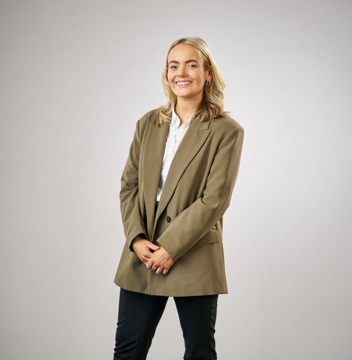Every member of our family law team at Burness Paull is certified by the Law Society of Scotland as being trauma informed.
This means we recognise the lasting effects of trauma and work collaboratively to ensure our clients are supported at every stage with understanding, sensitivity and care.
In previous insights, our colleagues David Coutts and Richard Smith shared how being trauma informed has influenced their practice . In this insight, Jennifer Wilkie, Nilah Ulhaq, Anna McCorquodale and Emily Harley share their reflections…
What is your main take-away after completing the trauma-informed course?
Jennifer – One of the main takeaways for me is how we respond to the client as a whole person. Divorce is often approached as a legal challenge, ignoring the human being(s) at the heart of each decision made. The person we meet has a whole life experience behind them which may involve trauma, and we are often now seeing that person go though another traumatic life experience. It is important that as family lawyers we understand we are not there to diagnose, label or treat people, but we can identify when someone is in crisis or is struggling to cope. We can help people to find the right professional help and support through working collaboratively with them and other professionals to improve their resilience and find coping strategies.
Nilah – My biggest takeaway has been recognising how trauma affects people neurologically. Trauma can change how the brain works, affecting memory, behaviour and perception. As humans, we often jump to our own conclusions about why people may be acting in a certain way, not recognising that their behaviour is shaped by their own life experiences – and our perception is shaped by our life experiences. People who have experienced trauma may find they have memory loss, heightened anxiety or struggle to make decisions. It is important that as their lawyer we recognise that these reactions are rooted in biology, not choice.
What advice would you give someone contacting a lawyer for the first time in a stressful situation?
Anna – Naturally, meeting a lawyer, and specifically a family lawyer, for the first time is often an unnerving and foreign environment for clients. Taking that first step in organising an initial meeting can be daunting in itself. What I find helps focus the conversation is when our clients tell us what they want to get out of the meeting. Setting this out to your lawyer in advance of the meeting can focus discussions and ensure that the questions you want answers to are answered. Particularly when you are going through a stressful and upsetting situation, you may feel overwhelmed and forgetful during the meeting itself – we have learned that this is a common side effect of trauma. If you don’t have any objectives, that’s okay! We can guide you through discussions. We understand that it is important for our advice to be tailored for individual circumstances and needs, which we aim to achieve by establishing your objectives from the start. In addition to this, I would suggest bringing a person with you to the meeting to offer you emotional support. Having a family member or friend beside you may help you feel more relaxed, and they can offer assistance in discussions if and when it is needed.
Emily – My advice would be to prepare as much as possible for the first meeting with your lawyer but also appreciate that the discussion might not go the way you had imagined. Taking a list of questions or points you would like to cover will help to focus matters when the subject matter is emotional or stressful. It is important clients can have open and honest conversations with their lawyer, even if this is difficult. Clients should feel also that they can set boundaries with their lawyer, such as expressing a preference for in-person meetings, asking to communicate at certain times of day or to take breaks during meetings, if these will help them to cope with the stressful situation they are in. Being trauma informed has helped me to understand the impact of traumatic experiences on clients and how different this impact can look person to person.
Has there been a change in how family lawyers offer support to clients?
Jennifer - I would like to think so. As well as the trauma informed training provided by the Law Society of Scotland, there are a number of significant projects undertaken across the UK which support a more human-centric approach to understanding and dealing with conflict and trauma. While we are better equipped to understand the emotional impact of a separation, our role remains distinct from the highly trained professionals who provide clients with the tools to look after their mental health.
As a firm, we are signatories of the Mindful Business Charter which has resulted in significant work to improve the way that we deal with conflict in contentious matters. We are looking forward to hosting an event for Scottish legal professionals on Wednesday 3 September in Edinburgh. This event will showcase and bring together various vital initiatives aimed at rehumanising the way we resolve disputes.
Written by
Related News, Insights & Events
Error.
No results.

When is my separation legal?
12/02/2026
In Scotland, the legal definition of separation is based on the “relevant date.” This means that a separation is deemed legal when a couple’s married life comes to an end.

Formation and breakdown of marital relationships: An immigration and family law perspective
20/01/2026
This blog explores the unique dynamics of relationships, with a focus on separation and divorce in Scotland, and how these processes interact with immigration considerations.

Is your international adoption recognised in Scotland?
28/11/2025
For many individuals and couples, the journey to parenthood is not always straightforward. In this article we explore the legalities of international adoption.
{name}
{properties.pageSummary}
{properties.headline}
{properties.pageDate|date:dd/MM/yyyy}
{properties.shortDescription}




